How to Store Batteries (11 Helpful Tips)
-
Ed Malaker
- Last updated:

Batteries can be quite expensive unless you buy them in bulk, but when you do, it can be difficult to store them correctly so they don’t lose all their power before you get a chance to use them. If you need help in this area, keep reading as we list several tips and tricks that you can use to store your batteries for maximum life.
Top 11 Tips on How to Store Batteries
1. Keep the Batteries in the Original Package
Keeping your batteries in the original package until you use them can help protect them from environmental problems, like contact with metal and moisture. Storing them this way will also help you know which batteries are still new.
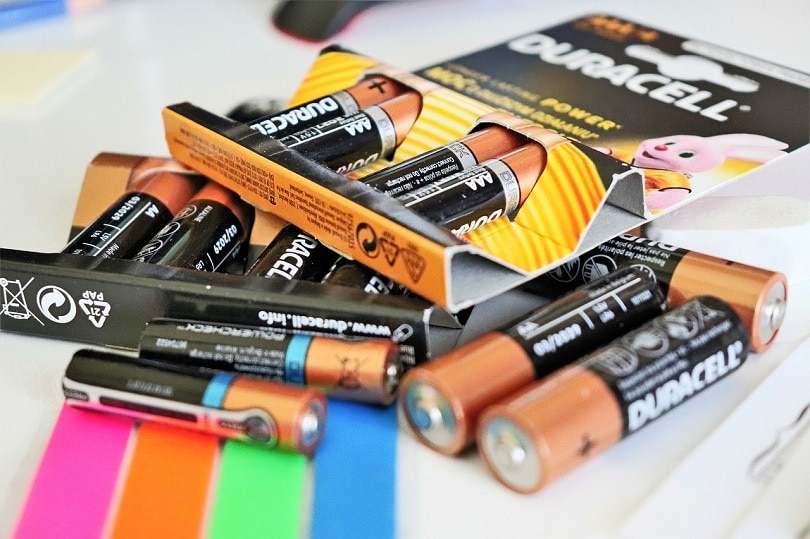
2. Separate Your Used Batteries
Separating your batteries by type, remaining charge, and even brand can help make them easier to find when you need them. It can also help prevent them from coming in contact with each other, which can cause leaking.
3. Organize Your Open Batteries
If you have open and loose batteries, sort them so they all face in the same direction in a container so they don’t touch and short out. Storing them together will also help make it easier to find them later.
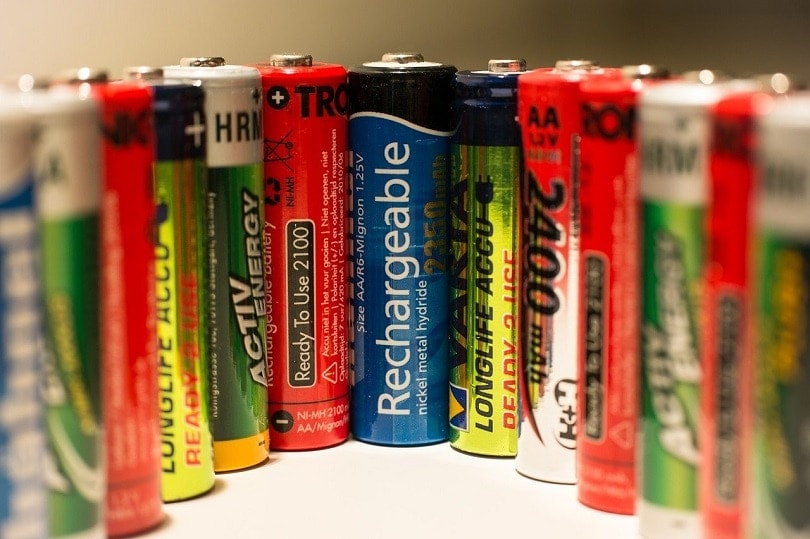
4. Keep the Batteries Away From Metal
If you can’t find a way to store the batteries in a container to protect them, at least avoid placing them in a drawer with metal items like staples, nails, and screws, which can short out the batteries, causing them to lose their charge or short out and start leaking.
5. Leave the Caps Intact
If you are using 9-volt batteries or another type with caps that protect the terminals, leave them in place until you are ready to use the battery. Keep the caps if possible to help improve the storage of a future battery.
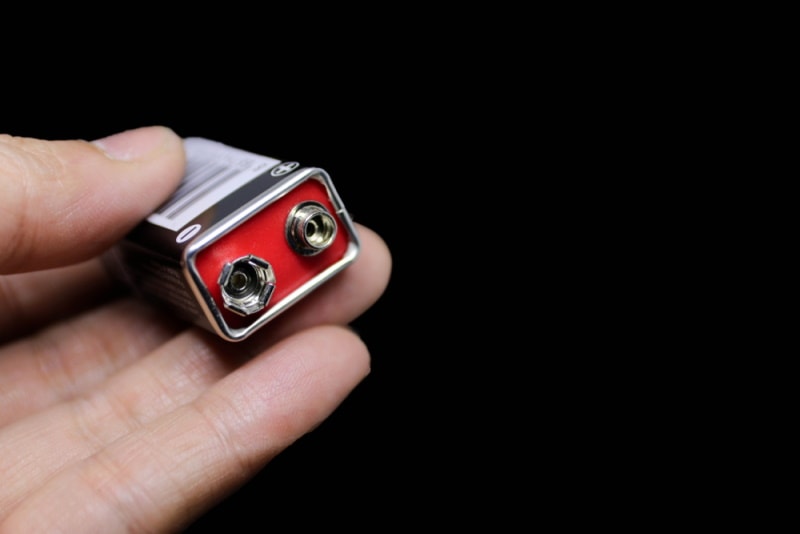
6. Don’t Crush the Batteries
When storing your batteries, don’t put them where a heavier object might crush or puncture them. This kind of damage frequently occurs while traveling.
7. Store Them at the Right Capacity
If you are using rechargeable batteries, it is important to store them at the right capacity. For instance, lithium-ion batteries perform best when stored with 30%–50% of their charge remaining, while lead-acid batteries prefer a full charge. You can store nickel-based batteries, which include NiMH, NiZn, and NiCd, at any charge.
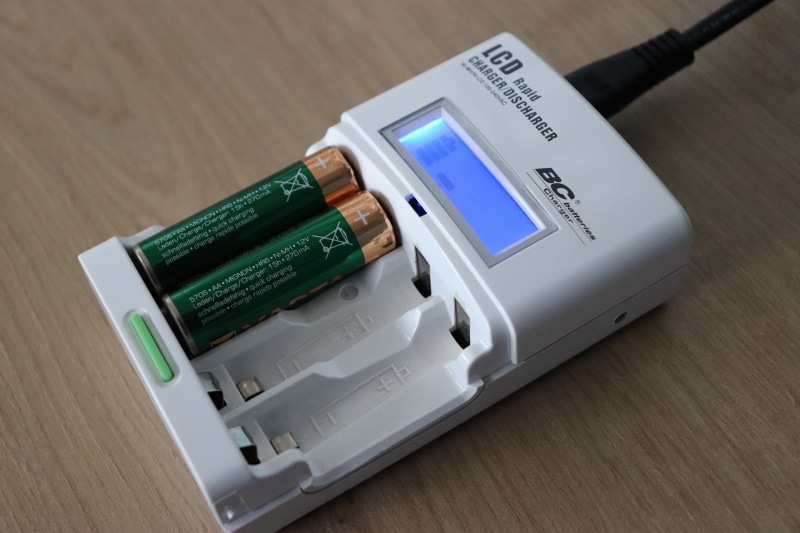
8. Store the Batteries at Room Temperature
Your batteries will perform and store the best at room temperature. Temperatures that are too warm can cause the battery to lose charge. High temperatures might cause swelling and leaking, so keep them out of direct sunlight. Cool temperatures can help the battery hold its charge longer but freezing temperatures can cause it to lose its charge quickly, especially automotive, lead-based batteries.
9. Don’t Store Batteries in the Refrigerator
Many people like to store their batteries in the refrigerator because the cooler temperatures can help them hold their charge longer, but the moisture present in the air can also cause condensation to build up on the exterior of the batteries, which can damage them.

10. Store Them in a Dry Environment
A humid environment can enable condensation to build up on the exterior of the batteries, which can lead to rust and other problems that can shorten their life expectancy. Choose a dry area, or use a vapor-proof container to help keep them away from humidity when you aren’t using them.
11. Store Them Away From Children
Small coin-shaped batteries are especially dangerous around children because they can present a choking hazard. If you frequently use these batteries, we recommend storing them in a child-proof container that’s kept out of reach.
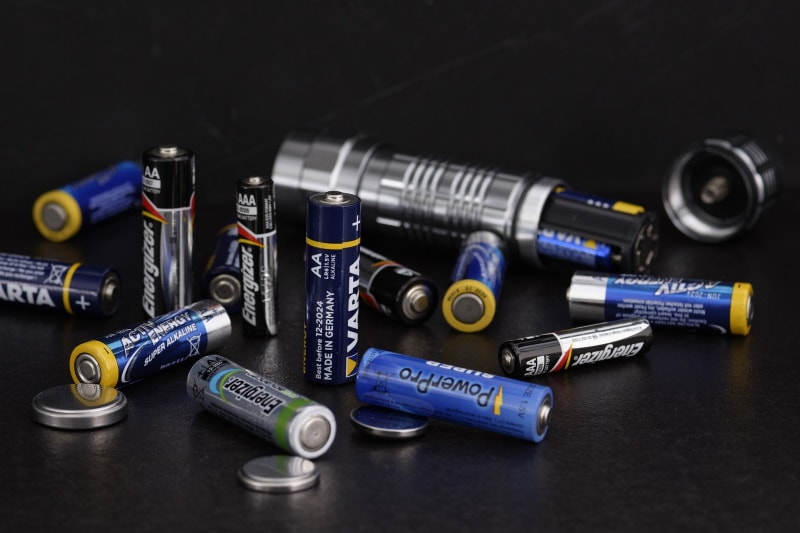
Other Tips and Tricks
- Never try to charge a battery that isn’t rechargeable. Every battery that you can safely recharge will have the word “rechargeable” printed on it.
- Remove your batteries, and discard them as soon as they stop working. Allowing them to sit in your device might cause them to leak, which can cause damage.
- If you will not use a device for a while, remove the batteries to prevent damage and retain the charge.
- Remove your battery from the charger as soon as it reaches full charge, so you don’t damage it.
- Avoid mixing batteries with varying levels of power.
Conclusion
When storing your batteries, keep them in the original package when possible, and place them in a cool, dry environment. Organize and separate your loose batteries so they are easy to find when you need them, and discard them as soon as they stop working, to prevent damage to the unit. Batteries can also last longer if you remove them from any items that you aren’t using, and don’t mix batteries with different charge levels.
Featured Image Credit: Ground Picture, Shutterstock
Contents
